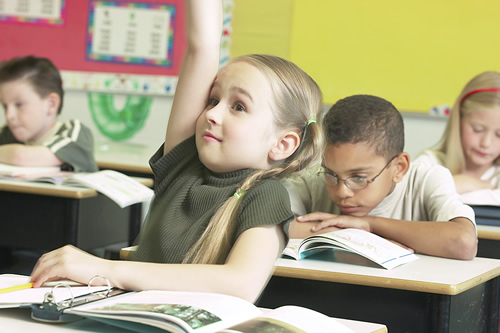-
THE RESPONSIVE CLASSROOM APPROACH
 Guiding Principles of Responsive Classroom:
Guiding Principles of Responsive Classroom:-
The social curriculum is as important as the academic curriculum.
-
How children learn is as important as what they learn: process and content go hand in hand.
-
The greatest cognitive growth occurs through social interaction.
-
To be successful academically and socially, children need to learn and practice specific social skills. Five particularly important skills are cooperation, assertion, responsibility, empathy, and self-control.
-
Knowing the children we teach-individually, culturally, and developmentally- is as important as knowing the content we teach.
-
Knowing the families of the children we teach is as important as knowing the children we teach.
Teaching Practices:-
Morning Meeting: Teachers lead students in a daily gathering that uses a format for greeting each other, sharing news, having fun together, and warming up for the day ahead.
-
Creating Rules: Teachers collaborate with students to develop classroom rules that support everyone's learning.
-
Classroom Organization: Teacher organizes materials, furniture, and displays which encourages student independence, cooperation, and productiveness.
-
Logical Consequences: Teacher responds to misbehavior with consequences that are respectful of the children and supportive of their efforts to learn how to fix their mistakes.
-
Academic Choice: Teachers use children's interests and the powerful learning cycle of planning, working, and reflecting to maximize students' academic growth.

-
Last Modified on September 19, 2019

